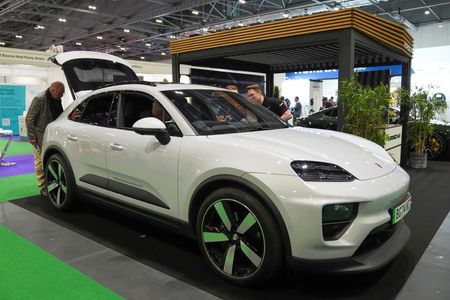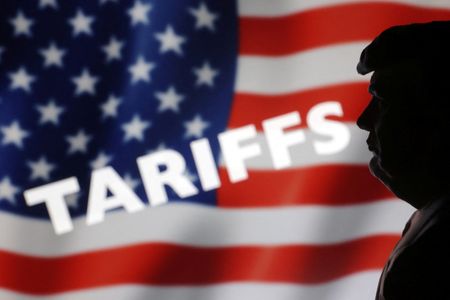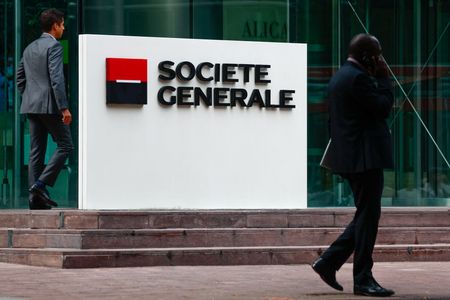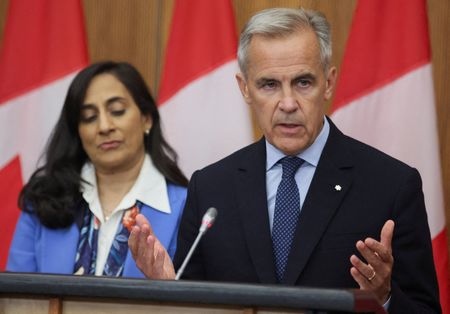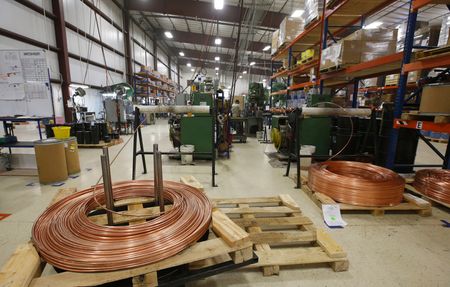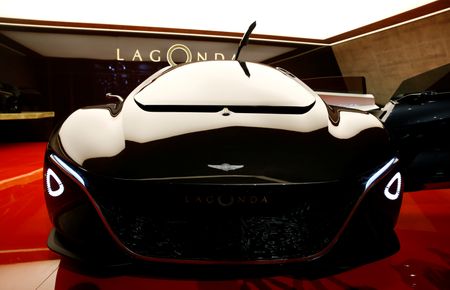By Rachel More
BERLIN (Reuters) -Volkswagen’s embattled luxury brand Porsche cut its full-year profitability target on Wednesday after the EU’s trade deal with U.S. President Donald Trump and reported a 400-million-euro ($462-million) hit from tariffs in the first half.
The burden of tariffs on car imports to the United States only added to Porsche’s woes, as it undergoes a costly restructuring while facing weakness in critical market China and a sluggish transition to electric cars.
“We continue to face significant challenges around the world. And this is not a storm that will pass,” Porsche CEO Oliver Blume said.
Taking into account the newly agreed tariff of 15% from August 1, the German carmaker expects group sales this year in the range of 37 billion to 38 billion euros, in line with its previous forecast, and a return on sales of between 5% and 7%, down from a previously expected 6.5% to 8.5% range.
Countermeasures such as price adjustments are included in that outlook as Porsche seeks to mitigate the damage, the company said.
Costs amounting to 1.3 billion euros related to the company’s restructuring were also included, it said.
Group figures released last week showed Porsche’s operating profit collapsing by 91% year on year in the second quarter, to 154 million euros.
COMBUSTION ENGINES AND CUTS
Outlining the carmaker’s response so far to U.S. tariffs, Porsche CFO Jochen Breckner said the company had already raised its U.S. prices by between 2.3% and 3.6% in July.
It currently has no plans to establish a U.S. production presence – a move that would allow it to avoid tariffs – but is assessing the situation, he added.
As for any sector-specific deal with Washington to lower trade barriers further, Blume told reporters he agreed with Mercedes CEO Ola Kaellenius that this would not happen.
Porsche’s ongoing overhaul involves pivoting back to combustion engine vehicles by investing in new models and restructuring its battery business in the face of low demand for its EVs in Europe and intense competition from local rivals in China.
In the first half, Porsche booked special expenses for the company’s realignment of around 200 million euros and around 500 million euros for battery activities.
“We expect that we will begin to see positive economic momentum again from 2026 onwards,” Blume said.
In February, Porsche announced an additional 1,900 job cuts over the next four years but said it could not announce any forced redundancies due to a location safeguarding agreement valid until 2030.
On Wednesday, Porsche said its management was “resolutely pushing ahead with extensive measures to rescale and recalibrate the company”, with negotiations with employee representatives to begin in the second half of the year.
Breckner declined to give further details ahead of the talks.
“What I can say, however, is that there will be painful cuts and that the package will be far-reaching,” he said.
($1 = 0.8655 euros)
(Reporting by Rachel More; Editing by Kirsti Knolle and Joe Bavier)

